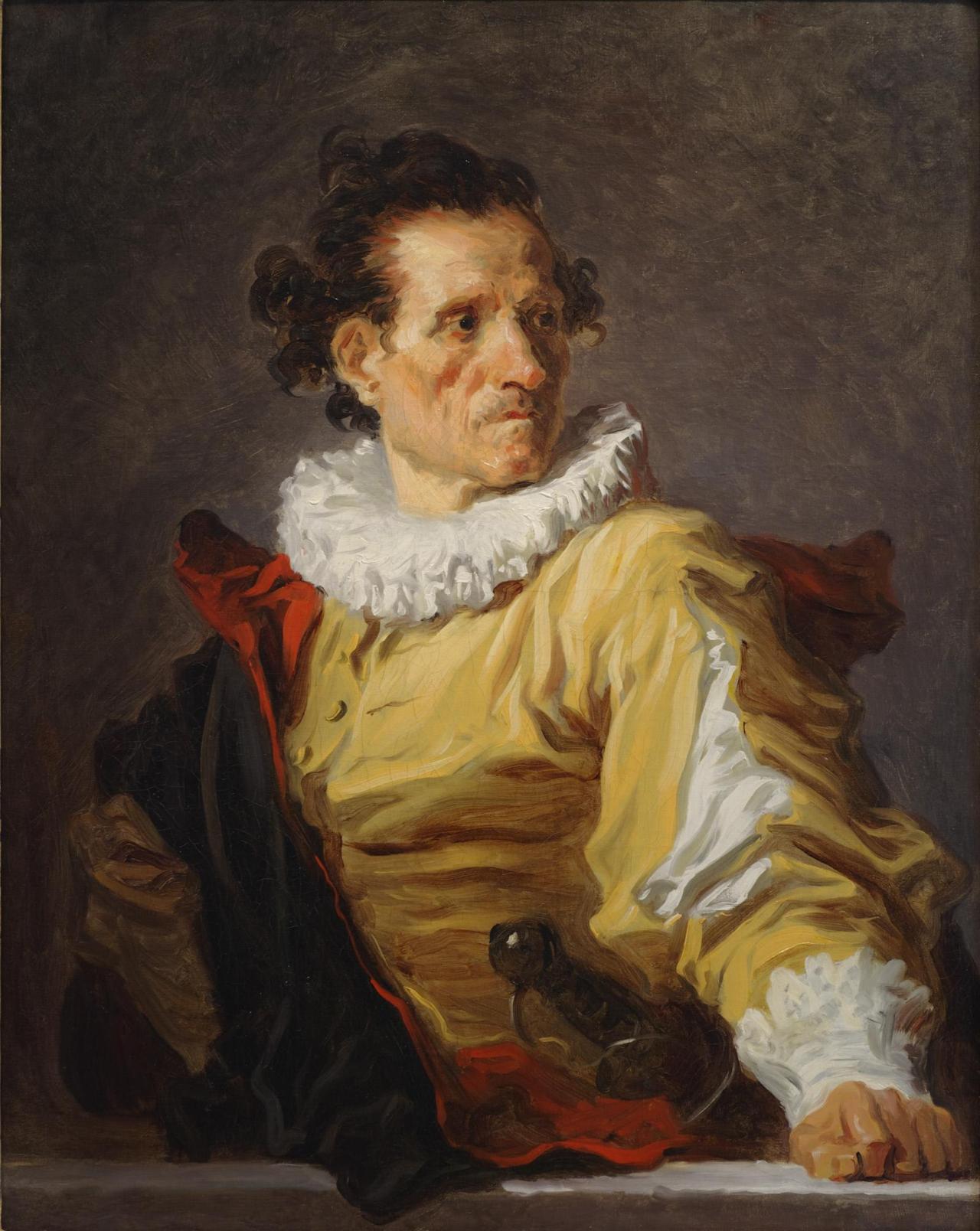 |
| Jean-Honoré Fragonard The Warrior (Fantasy Portrait), c. 1770 Oil on canvas The Sterling and Francine Clark Art Institute |
This painting of a type (Lucio is called "a fantastic" in the list of dramatis personae), reminds me that we are all, viewed in a certain fashion, types. If an author were to model a character on us, she would classify us to help her readers understand who we were and then, if she is talented, show how we deviate from our type. If we weren't types, in real life as well as in fiction, we would be totally opaque to one another.
Shakespeare's characters, especially in the comedies, are also types, though, because of his genius, even his types have psychological depth.
As for Lucio, like the far from angelic Angelo, he bears an inappropriate name (meaning "light"), contrary to his dark character. We encounter him bantering with two unnamed gentlemen until Mistress Overdone (labeled "a bawd"), whom Lucio refers to as "Madam Mitigation," enters with news:
MISTRESS OVERDONE
Well, well; there's one yonder arrested and carriedSecond Gentleman
to prison was worth five thousand of you all.
Who's that, I pray thee?MISTRESS OVERDONE
Marry, sir, that's Claudio, Signior Claudio.First Gentleman
Claudio to prison? 'tis not so.MISTRESS OVERDONE
Nay, but I know 'tis so: I saw him arrested, sawLUCIO
him carried away; and, which is more, within these
three days his head to be chopped off.
But, after all this fooling, I would not have it so.MISTRESS OVERDONE I am too sure of it: and it is for getting Madam
Art thou sure of this?
Julietta with child.
Claudio's plight provides the motivating force of the plot, and the news of it comes as a shock both to the characters on stage and to the audience of this comedy after Lucio's frivolous talk with the two gentlemen, especially since it is borne by a totally disreputable character.
Significantly, in accordance with the genre of comedy, the play is full of unapologetic low characters like Mistress Overdone, representatives of the pleasure instinct, and, equally significantly, their response to Claudio's plight, unlike that of the rigid Angelo, is humane. Mistress Overdone says Claudio is worth "five thousand of you all," and the superficial Lucio is appalled: "After all this fooling, I would not have it so."
* * *
A note of explanation.
Why am I filling up this blog with comments on Measure for Measure?
Having gone somewhat beyond the halfway point in the Complete Works, I decided it was time to take stock, and a lot of ideas bubbled up in my mind while reading Measure for Measure. After all, I do have a doctorate in Comparative Literature, and I did concentrate on the late Renaissance, so I'm connecting with things that mattered a great deal to me when I was much younger.
No comments:
Post a Comment